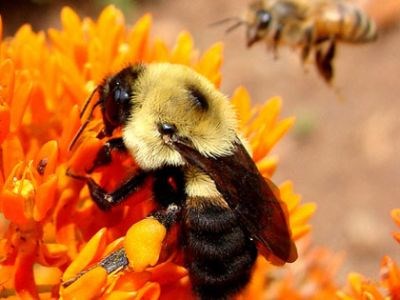The Rural Agri-Innovation Network (RAIN) in Sault Ste. Marie is working with the University of Guelph to monitor pollinators in Northern Ontario.
It’s part of a larger university project examining pollinator information across the province, and marks the first time pollinator monitoring will expand into the North. RAIN will provide insight into pollinator populations in the Sault Ste. Marie and Algoma regions.
The project will establish a baseline to better understand which species are found in the region, where and when these species are active, and contribute to a wider understanding of the current status of wild pollinator biodiversity across Ontario.
Pollinators include birds, bats, bees, butterflies, beetles, flies, moths and other small creatures that visit flowers, and they are vital to the production of many healthy crops for food, animal feedstock, fibres, edible oils, medicines, and other products.
“Currently, very little is known about the pollinator landscape in Sault Ste. Marie and Algoma District,” said David Thompson, RAIN research project coordinator, in a release.
“This project aims to set a baseline for pollinators across Ontario, and RAIN is pleased to promote this project and get the community involved.”
The project is expected to provide vital information for helping to conserve and manage pollinator habitat at a time when some pollinator species are in decline.




